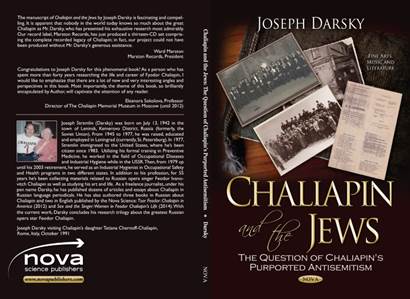
Nova Science Publishers, New York 285 pages, paperback, index, photographs US$85.50
"CHALIAPIN AND THE JEWS — The Question of Chaliapin’s Purported Antisemitism” by Joseph Darsky

Nova Science Publishers, New York 285 pages, paperback, index, photographs US$85.50
Joseph Darsky (Joseph Stremlin)’s new book in English on Chaliapin, this one about the basso’s life-long interactions with persons of Jewish ancestry is a major addition to the numerous books written about this great operatic and theatrical genius.
Disclaimer: I am a friend of Stremlin’s and do not put myself forward as a critic of this work, but rather as an explainer of what this book is about and elaborate on Stremlin’s methods.
Darsky, Stremlin’s pen name, is the pre-eminent scholar in the West who has done probably the most research on this eminent personality. He has published many books in Russian and this is his third and last in English, the first a massive study of Chaliapin’s career in the Americas, and his second on the women in his life. Many people will wince at the title of this book, but it is not as far-out as it might seem as Russia’s and the Soviet Union’s history with its Jewish population is problematic at best, and the Russian Chaliapin’s navigation of his career had many points of contact with Jewish musicians and figures in the classical music business. Over the fifty-plus years that Darsky has researched Chaliapin he filed away all the information he uncovered along the way that touched on Jewish personalities. This information, mostly from Russian sources, his interviews with members of Chaliapin’s children and grandchildren, and from newly-opened Russian archives forms the bulk of data.
We now know that Chaliapin’s daughter Lydia, who herself made recordings (click here to listen), and who was a pedagogue, was lesbian and had a Jewish lover, and that his son Boris the noted TIME magazine cover artist was married to a Jewish woman. One of his children described to Darsky that the Chaliapin home was a veritable United Nations, so many nationalities and ethnicities, and no discrimination or prejudice.
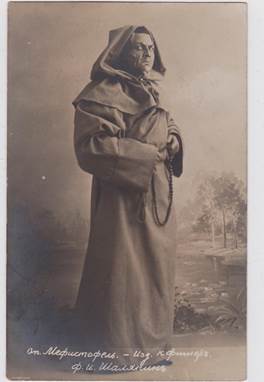
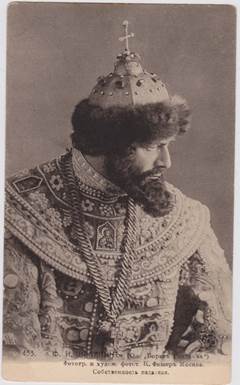
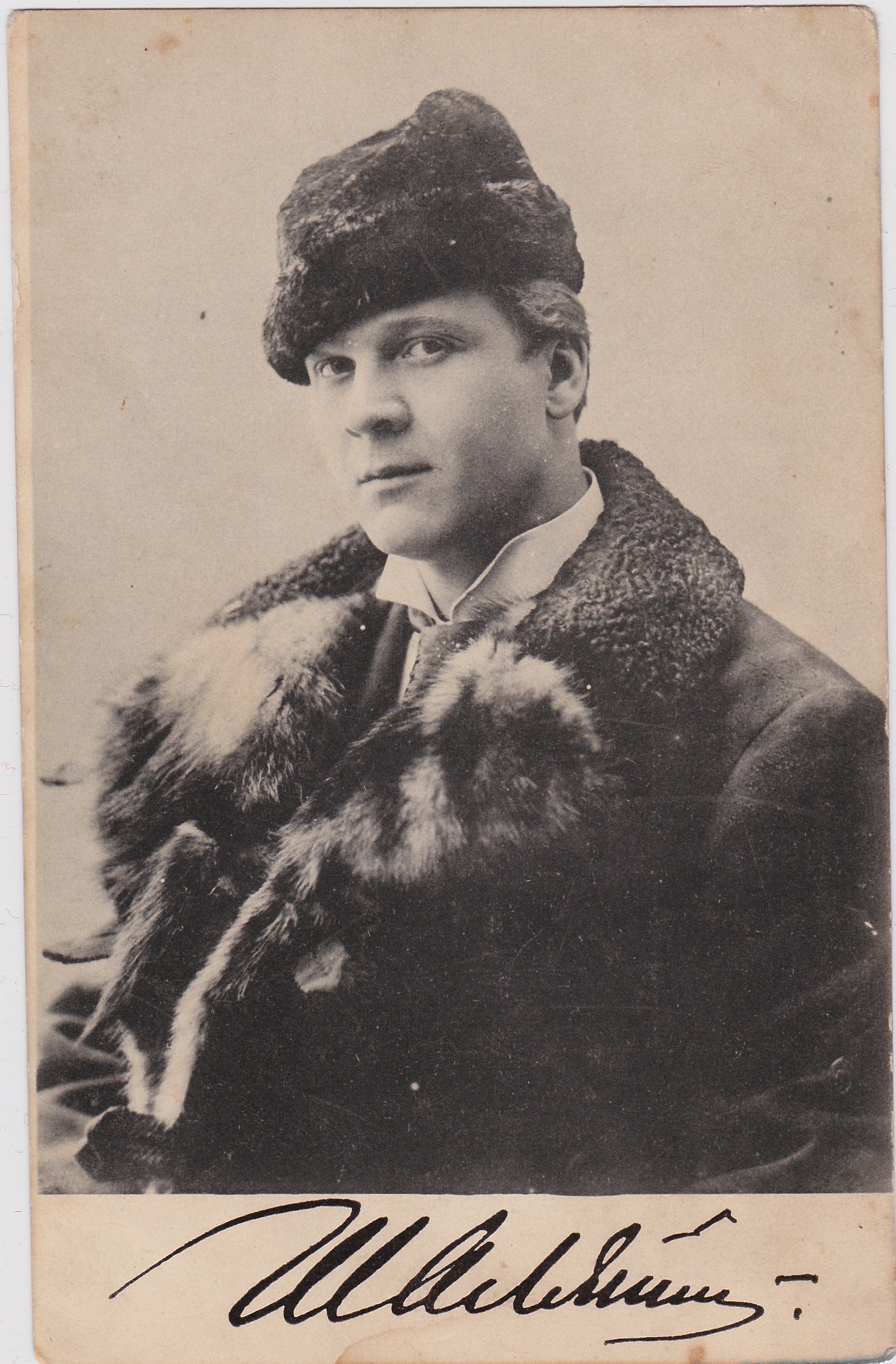
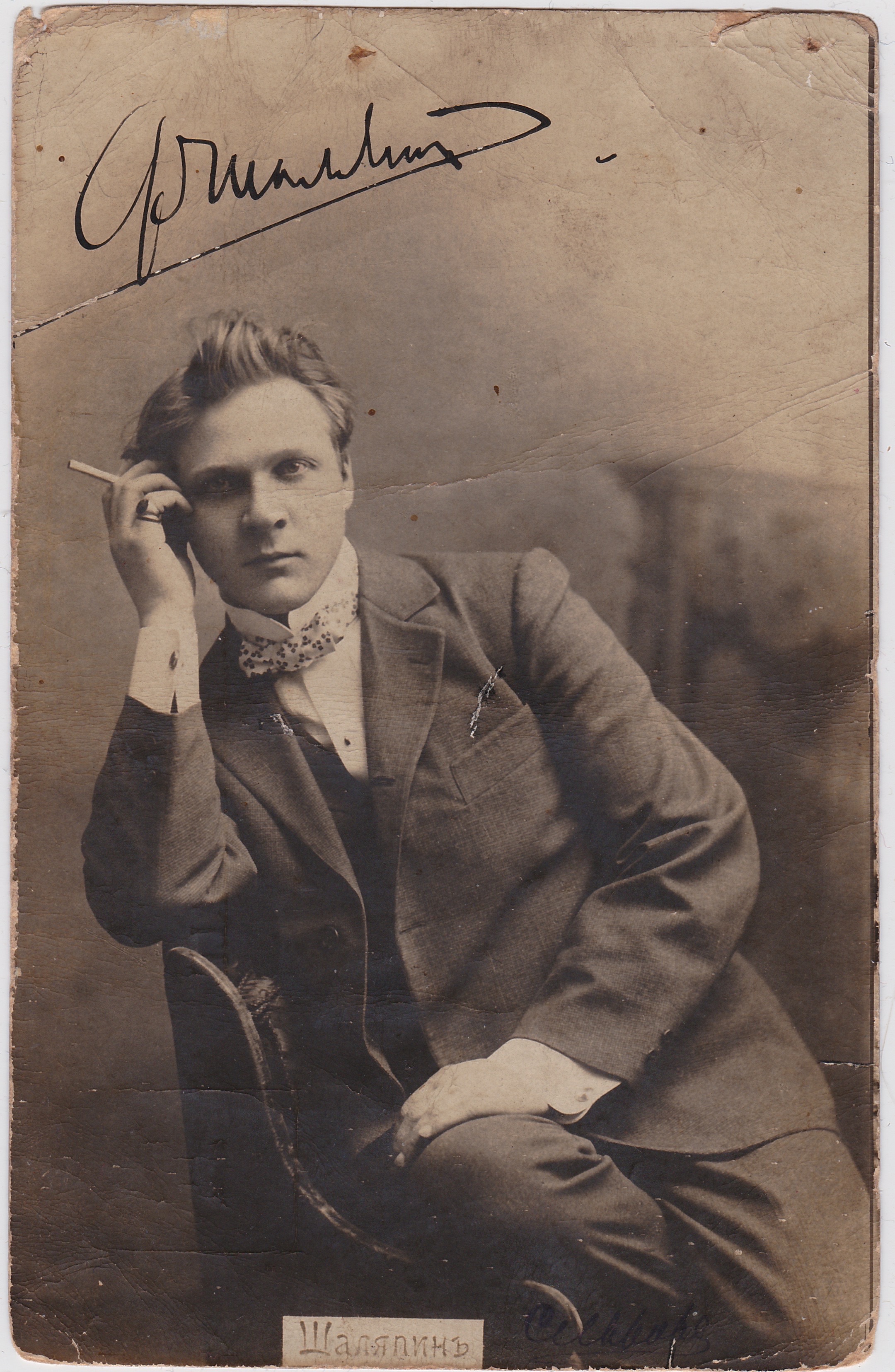
(As Mefistofele, Boris, and two portraits, courtesy Charles Mintzer collection)
The subtitle of the book “The Question of Chaliapin’s Purported Anti-Semitism” has to do with a few documented unfortunate utterances that could be damaging, but Darsky puts in context these outbursts, thus minimizing them, seeing them as part of Russian upper-class snobbery, nothing to tarnish the great man’s true and benevolent feelings towards Jews. Chaliapin was an early Zionist, supporter of the idea of a Jewish homeland and gave concerts and money to that cause.
Chaliapin’s artistic and business conflicts with Jewish impresarios Sol Hurok and Raoul Gunzbourg (Monte Carlo Opera impresario) have to be viewed as the natural give-and-take among the artist and those presenting him, sometimes brutal business issues, not bespeaking any darker set of feelings.
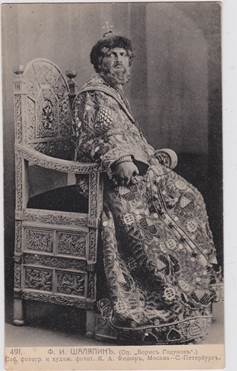
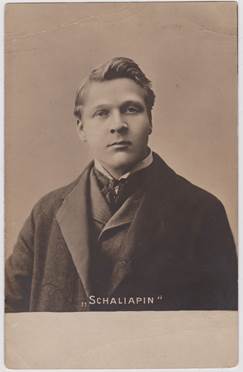
(Boris, and portrait, Charles Mintzer collection)
One of the take-aways from this book is the staggering amount of personalities Darsky documents. In a way it is a book of lists, biographies of fellow artists, presenters, conductors, accompanists, stage directors and designers, and figures in the cultural life of Russia and America. Using Russian and Soviet sources, with a heavy reliance on the Russian use of patronymics Darsky has presented a dazzling encyclopedia, one that conjures up a bygone period worth studying.
The book is published by Nova, a house specializing in science-related subjects, but was interested in Darsky’s work. It has a hefty price, but the text is well printed; the photographs are clustered at the end and are in half-tone. The book is well-indexed, a very important plus in a study dealing with names. The book will be of interest to lovers of Russian opera, students of the impact of Jewish participation in the arts, and anyone who is intrigued by the title.
Charles Mintzer, November 2017